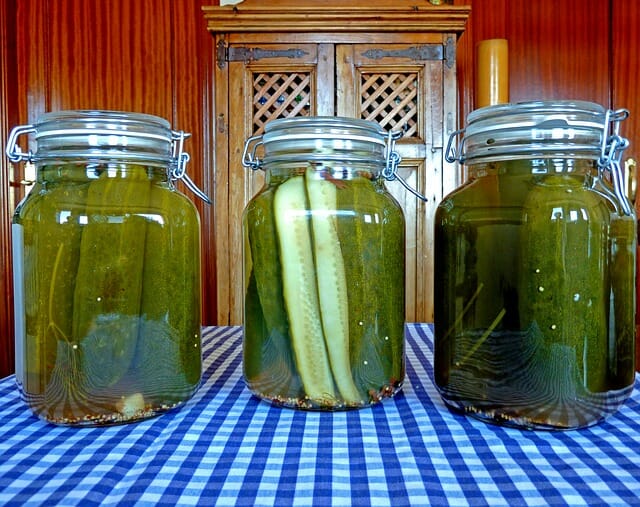Give a man a fish and you feed him for a day. Teach a man to fish and you feed him for a lifetime. Most people are familiar with the old proverb, but not everyone has considered how its wisdom can be applied to disaster preparedness.
Food procurement and processing skills are more valuable than food stockpiles in the long term. I will not deny that a well-filled pantry is vital, for myriad reasons. Hurricanes, blizzards, job loss, interrupted supply chains, and dozens of other scenarios are perfect examples of why people always should keep plenty of food stored. Emergency management guidelines advise that every household keep at least three days’ worth of food, water and necessities on hand.
I admit that my own food storage room contains more like three months’ worth, and likely even more. The shelves are chocked full of jars of food, everything from green beans to tomato sauce to applesauce to chutney to barbecue sauce to chicken stock. There also are containers of dehydrated produce, jars of homemade maple syrup, and root cellar foods such as onions and garlic and pumpkins. The freezers contain berries and vegetables and meats.
If a short-term crisis occurred which prevented me from purchasing food, my household will not go hungry. At worst, we’ll be inconvenienced, or end up growing weary of certain foods and yearning for others.
The Problem With Stockpiles
But here’s the thing. If food suddenly became scarce for a long period of time, the food I have stockpiled would be nothing more than a good start. The same is probably true for many — if not most — people who store any volume of food.
Just 30 Grams Of This Superfood Provides More Nutrition Than An Entire Meal!
In the end, however, no matter how much is stored, food supplies will run out. And long before the stocks are depleted by consumption, other losses can occur. Food can be stolen. Containers can break. The storage facility can become inaccessible. Floods, earthquakes, fire, insect or varmint infestation, mold and general spoilage can destroy stockpiles. Unexpected events happen — which is, of course, the entire premise for storing food in the first place.
Much of my food stockpile is comprised of food which I made myself. I planted, tended and harvested the vegetables and fruits and berries on my homestead, and then preserved enough of it to last my household through the winter. The meats come from animals I raised myself or bartered for with other homestead products, and the cheeses are homemade from my own goats’ milk.
I keep a good supply of whole food staples on hand, as well, which I use for making homemade items. A variety of flours and grains, bought in bulk and stored long-term in smaller bags in the freezer, keep my household supplied with bread. There are other store-bought goods I cannot make for myself, such as cooking oils and nuts and sugar and leavening. Like all stored food, it would eventually run out, but being able to generate as much of my own food as I do still serves me well, both now and later.
The Solution Is Simple: Skills & Knowledge
The ability to rely on one’s own skills and knowledge is of real value in any situation, and certainly no less so when it comes to putting food on the table. Being at the mercy of whatever can be bought at the grocery store when our own supplies run dry is not a good position to be in — ever. Not in normal life today, not in a short-term crisis, and certainly not in the case of a serious catastrophe.
Having the ability to produce our own sustenance is a distinct advantage. Knowing how to raise a wide variety of both plant-based and animal-based food, having the skills to process and preserve those ingredients, and being able to create palatable nutrition from the basics are crucial components to feeding oneself.
Foraging skills are also useful. Depending upon the season and geography, the natural world often provides a buffet of edibles. Knowing how to safely locate, harvest and prepare wild plants and fungus could be crucial in a wide variety of situations, from getting lost overnight while out hiking or hunting to being completely destitute.
These skills will not be depleted, stolen, lost or destroyed. They will last forever and can be used not only to feed oneself and one’s own household, but can help serve communities or can be used to barter for other goods and services. Anyone who has invested time in learning how to do things like plant a garden, milk a goat, make cheese, can green beans, keep pigs from escaping their pen, keep pests out of the berry patch, boil down sap into syrup, churn butter, knead bread, identify edible mushrooms, dig up wild roots, and other food-related skills will always have that experience to fall back on.
Armed with know-how and practice, we are all better prepared for whatever comes along, whether it is everyday life now, a minor weather-related emergency or personal crisis later, or an earth-shattering event sometime in the future.
Do you agree or disagree? Share your thoughts in the section below:
